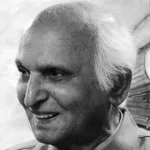The great advantage prose writers enjoy over poets is that when the galloping pen shows signs of fatigue they switch turfs and start writing memoirs. If not that, a journal.
Tauseef Tabassum however has been a poet first. But the pen that wrote ghazals is maybe slowing down a bit. It is well therefore that he has rested the poetry and recorded his memories. The surprise here is that he remembers little, no, very little, about himself. About his contemporaries he remembers so much that the whole book is full of their accounts. Some of it is hearsay but mostly it is things he heard with his own ears and saw with his own eyes.
Ahmed Faraz is mentioned in some detail. Faraz, of course, was a great wit. At a tea reception at Dr Syed Abdullah’s, the host was wearing his hearing aid and pleasantly holding forth. A donkey passing by the house interrupted him with its loud braying. The host’s pet dog reacted by barking at the donkey, intending probably to stop it. The donkey, however, would not stop. Dr Abdullah remarked that the donkey was paying no heed to the dog. Faraz suggested quite spontaneously that the animal too required a hearing aid.
Raz Muradabadi, he remembers, chewed a lot of paan and was given to abusing whoever he was talking to. With him, abuse amounted to terms of endearment; that was how he showed his affection. Once after he was known to have been unwell Tabassum called by phone to inquire about his condition. His wife, he remembers, assured him that he was already better. “Masha Allah, he has had his quota of paan today and abused people a lot as well.”
Ata Hussain Kaleem, who worked for radio, had an obsession with hygiene. Every few minutes he’d get up and go thoroughly wash his hands. Syed Zamir Jafri thus wrote that watching him one would think the very purpose of man’s creation was washing and bathing. “Praised be the Lord who created man in such a way that unlike rocks and stones the human body does not get eroded. Else, Kaleem would be half gone by now.”
Abul Fazl Siddiqi, he says, was a very cheerful person and not above mischief. He once wrote Zia Jullendhri, a senior postal officer, an anonymous letter consisting of just the verse: “Could it be that my friend no longer remembers me? Or is it just that the post office is not functioning?” Zia’s wife, says Tabassum, happened to see the letter and was very upset. Zia could not at first guess who could have landed him in domestic trouble but concluded finally that it had to be Siddqi and wrote back: “The postal service is functional; it’s just that you mailman has been barred from certain places.”
These are the people Tabassum knew particularly well having lived and served in Peshawar and Rawalpindi. So he has put together a lot of interesting stuff about them for those who want to read about the poets. But then he probably thought there was no harm in including anecdotes he had heard about some other poets. These include the story about a senior civil servant complimenting Nooh Narvi at a poetry recitation for writing excellent Urdu poetry despite being a foreigner. Seeing that the audience as well as the poet had not got his point, he proceeded to elaborate: “Norwegian is not even remotely related to Urdu. And yet you have just entertained us with such a great ghazal.”
*Translated from Urdu
Published in The Express Tribune.



COMMENTS
Comments are moderated and generally will be posted if they are on-topic and not abusive.
For more information, please see our Comments FAQ